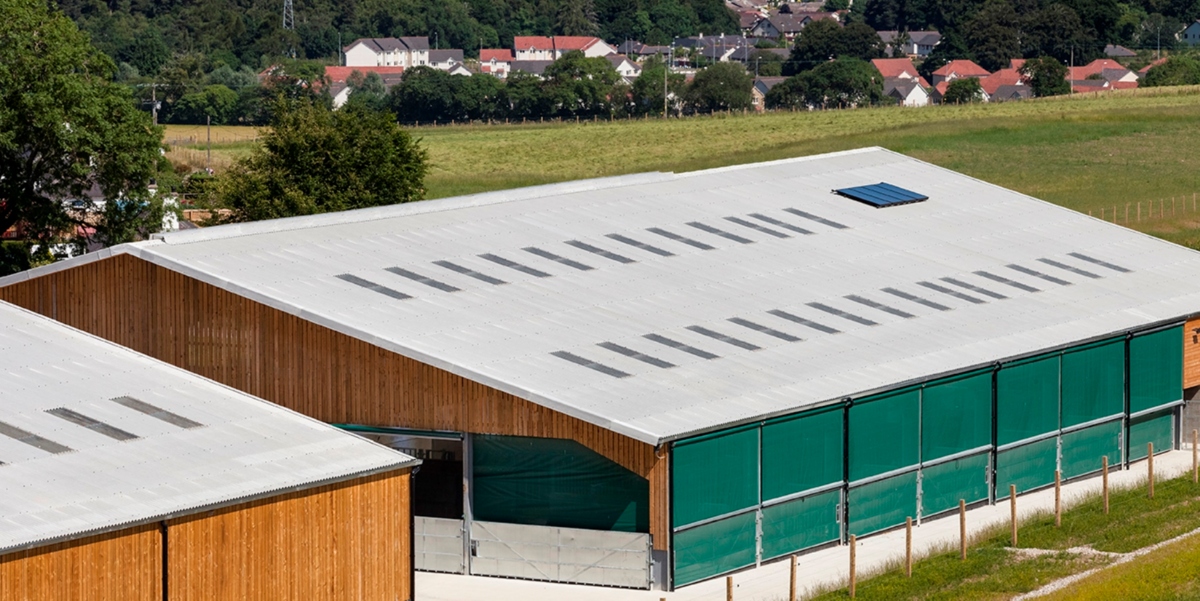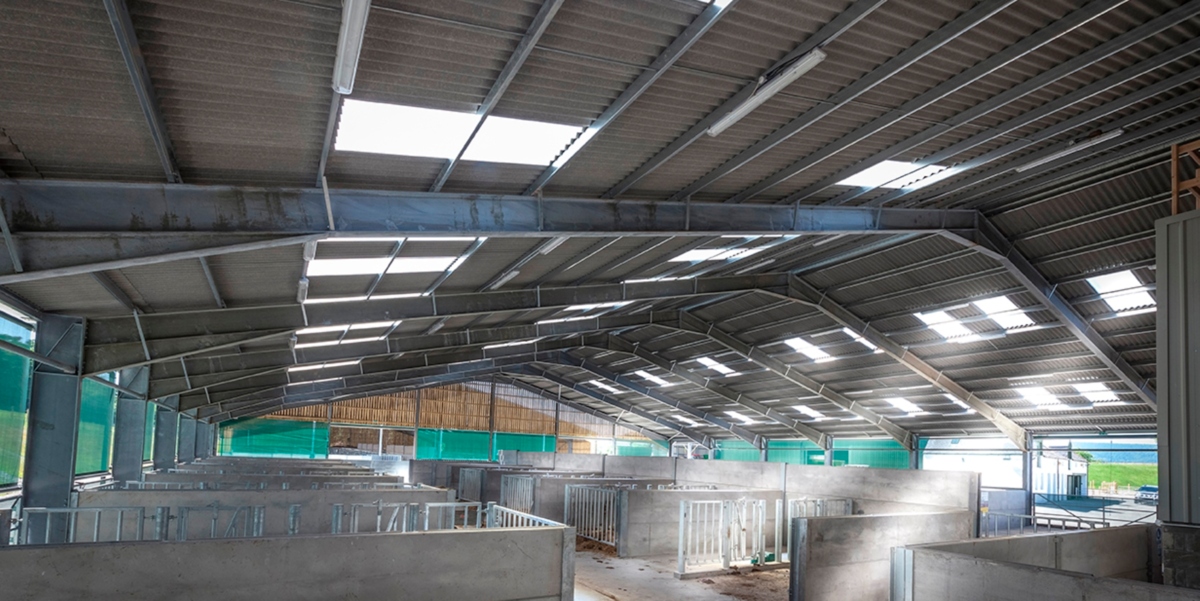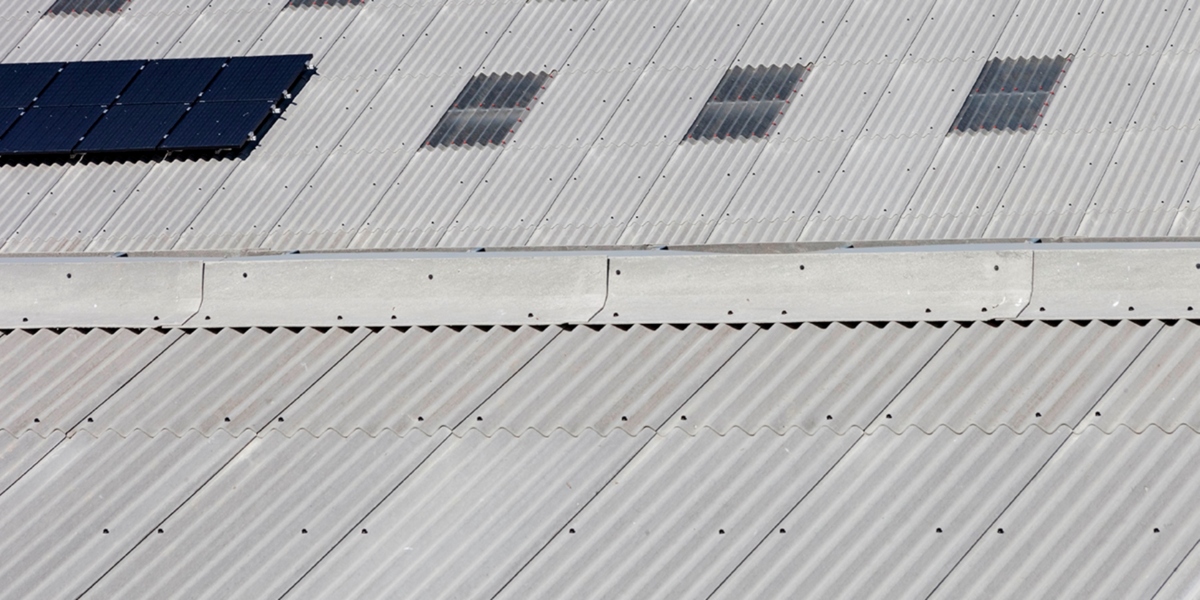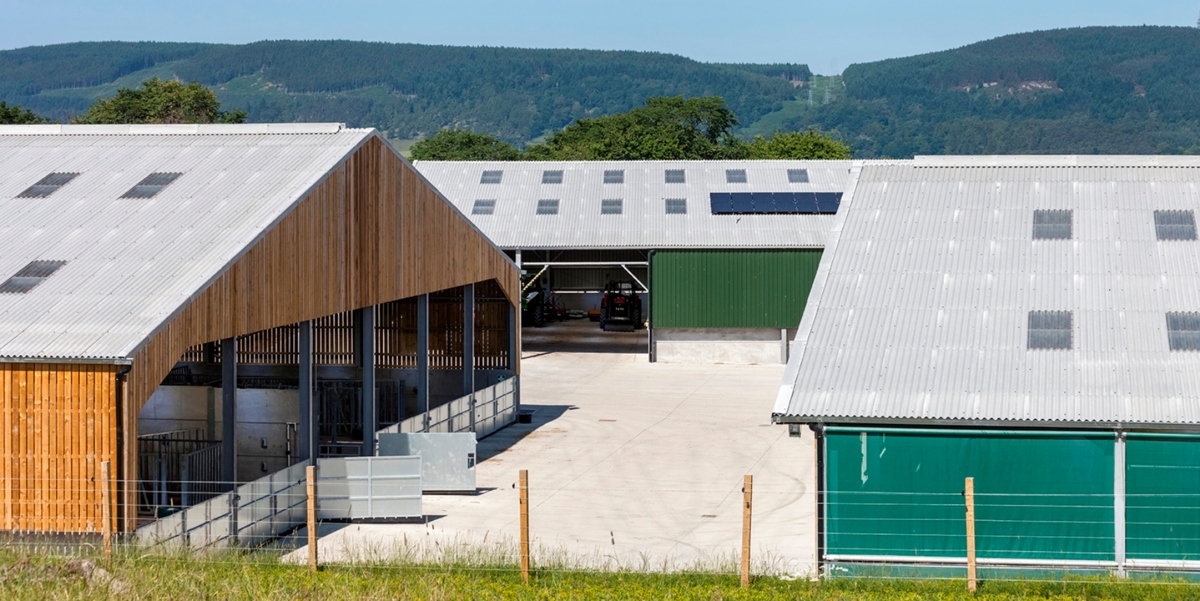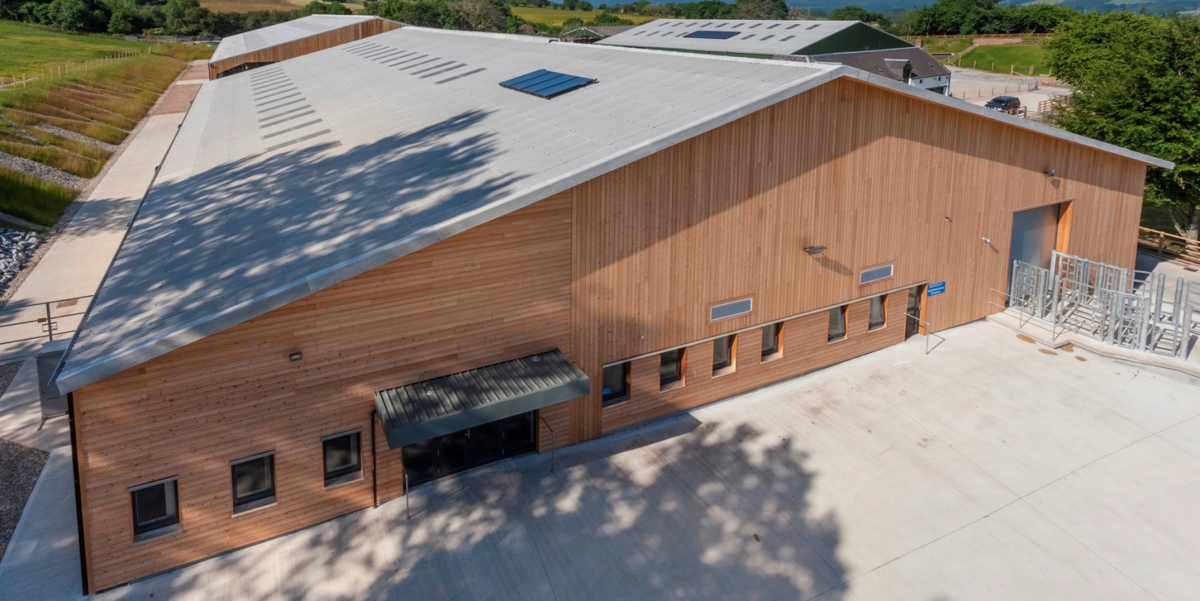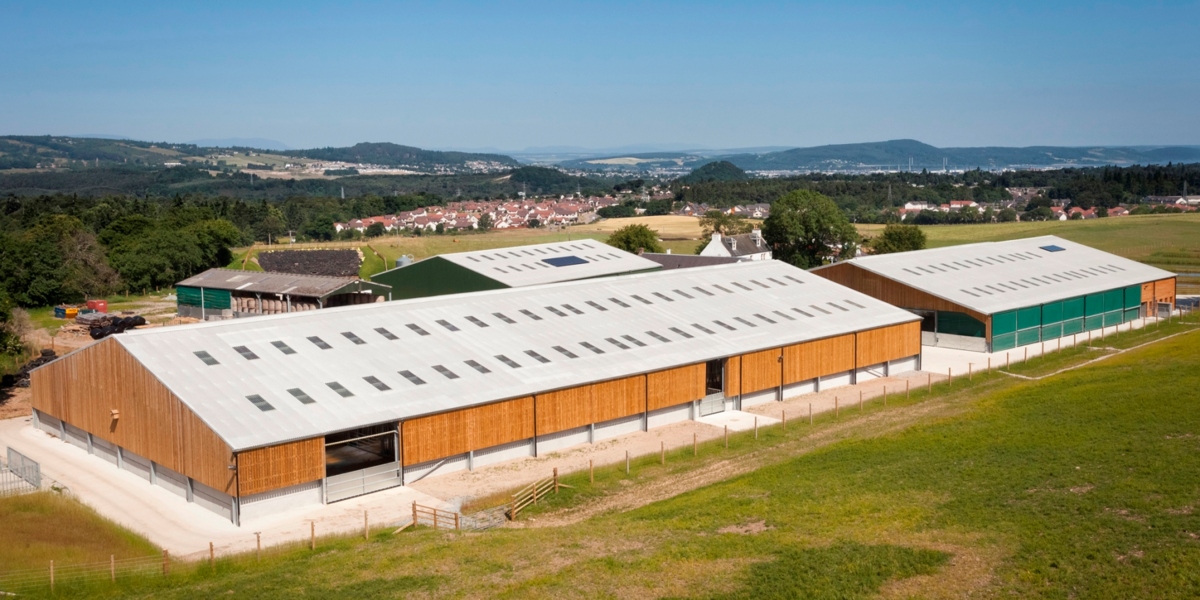Knocknagael Bull Stud Farm, Inverness
Details
- Colour
- Natural Grey
- Project
- New Construction
- Sector
- Dairy and Beef
Description
The farm provides a bull hire scheme for crofters to ensure they can supply quality stock to the Scottish beef industry. When the farm needed a new building for 150 bulls, they were keen to choose a roof covering that would help to keep the high quality animals in prime condition.The main priority was ventilation as a lack of air circulation could significantly impact animal health. The risks included increased foot problems and respiratory conditions, which could ultimately resulting in herd under performing.To combat this, Eternit’s fibre cement open protected ridges were used to create an effective ventilation system in the bull accommodation unit - ensuring a constant outflow of stale, moist air. The width of the air gap created by the open ridge was specifically designed for the number of bulls and size of the building. Profile 6 sheeting from Eternit was also specified for the roof, thanks to its durability and low maintenance costs, as well as its noise insulation properties.Ryan Brown, Director of building firm Robinsons Scotland Ltd, said: “We used Eternit profiled sheeting because it is strong, durable and does not have any issues with maintenance. We have worked with the product for a number of years and were confident that it would be able to fulfil the brief to create a healthier environment.”Unlike steel sheets, the fibre cement profiled sheeting at Knocknagael Farm is able to absorb up to 25 per cent of its dry weight in moisture before dissipating it in more favourable conditions. This reduces the issue of warm, moist air condensing on the underside of steel roof sheets where it then drips onto livestock and bedding. Profiled sheeting ranges from Eternit are particularly effective on buildings that house livestock as the density of the fibre cement material tackles reverberation often found with steel sheets, helping reduce animal distress. The sheeting also has an installed life expectancy of at least 50 years, even in aggressive environments such as livestock buildings where animals’ breath is slightly acidic.
